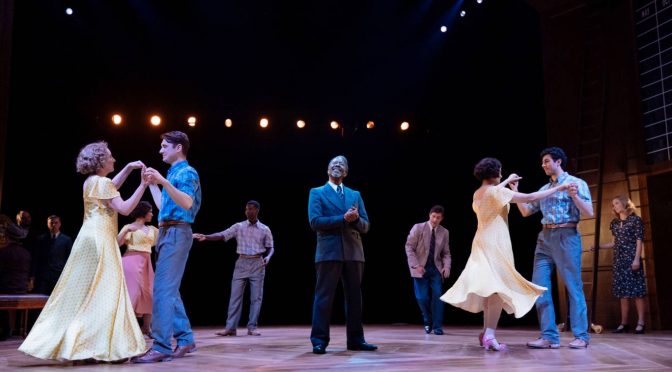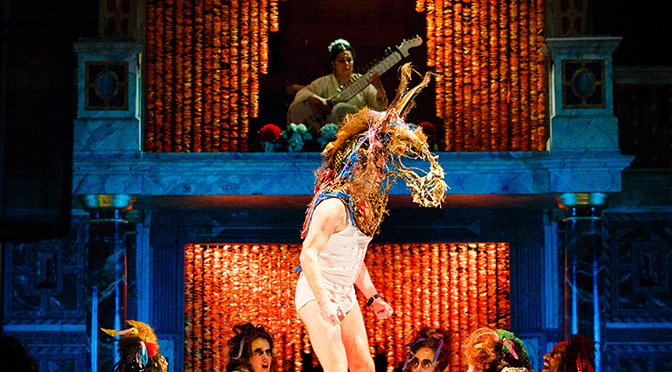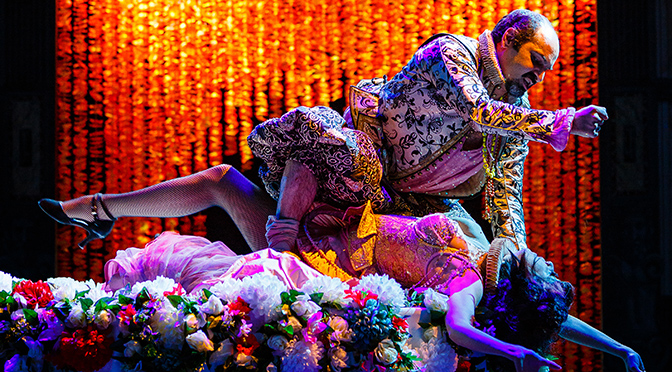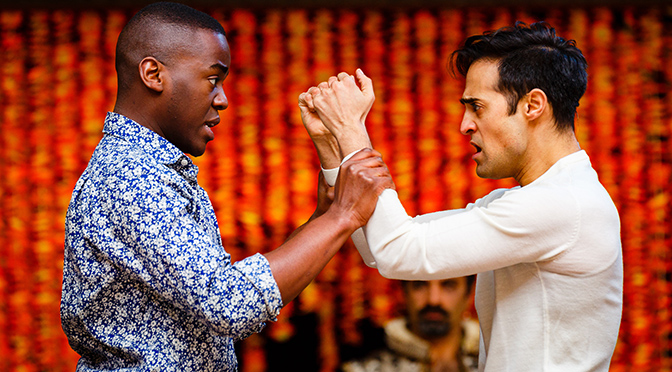Of the current and forthcoming productions of Arthur Miller plays in London, this piece from 1980 may count as the oddest and perhaps the most personal. The play gives an outline of The Great Depression, based on the work of oral historian Studs Terkel. And with much of the action focusing on a young man, similar in age and ambition to Miller in the early 1930s – whose family loses its money just as his did – it’s hard not to see it as an autobiographical fragment. Unfortunately, as a trip into the past it’s too potted. And as analysis of events it’s too pedestrian. That American optimism is relentless is rammed home, but doing so brings monotony. And while the idea of an American political left that challenges corporations might be intriguing, it has clearly been consigned to history. It all makes for a text that’s both slim and slow.
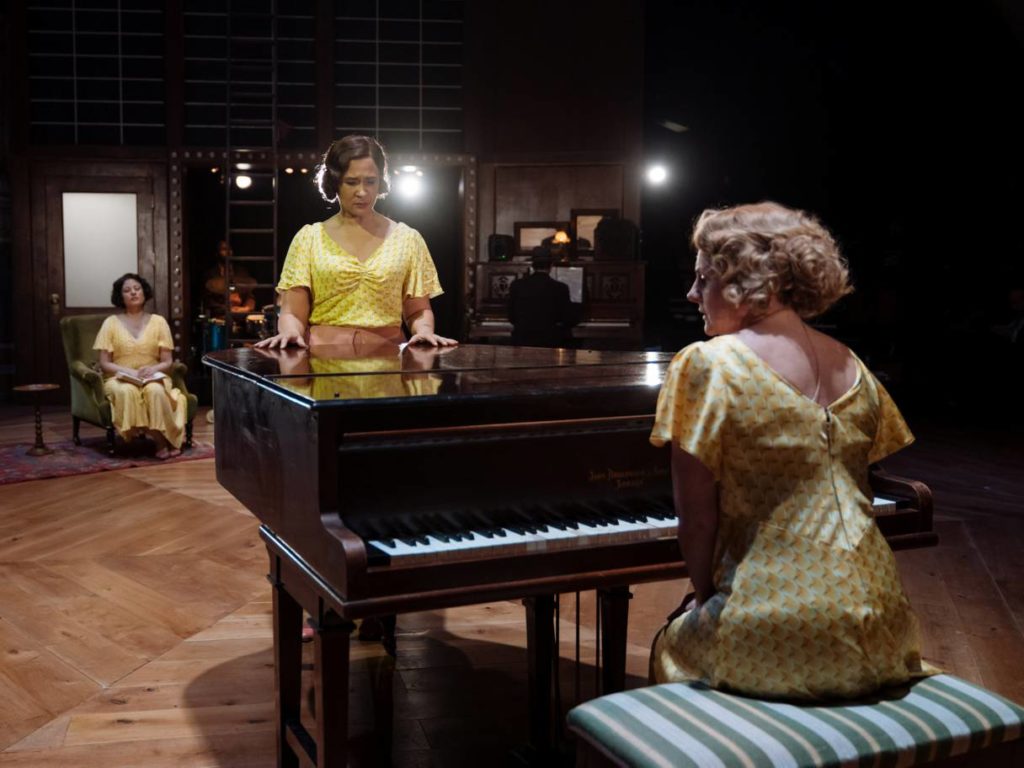
With an episodic structure and presentation that includes song and dance An American Clock still intrigues and the work of director Rachel Chavkin is strong. Making the lack of plot a virtue, the central family is played in triplicate: there are three sets of once wealthy mothers and struggling fathers, while a trio of sons grow up and start careers. It’s a neat way of showing the universalism of the economic disaster and is staged superbly – the device works to make the large ensemble cast really stand out. Clare Burt and Amber Aga both excel as the mother Rose while Golda Rosheuvel becomes the star by also punctuating scenes with a powerful singing voice. James Garnon has most time in the role of the father, and leaves the biggest impression, while three youngsters performing as the son Lee – Fred Haig, Jyuddah Jaymes and Taheen Modak – all impress. Worried about losing track? Thankfully, Clarke Peters is on board as the show’s narrator to make everything smooth. Few actors could make a story this predictable still entertaining and Peters is, as ever, superb.
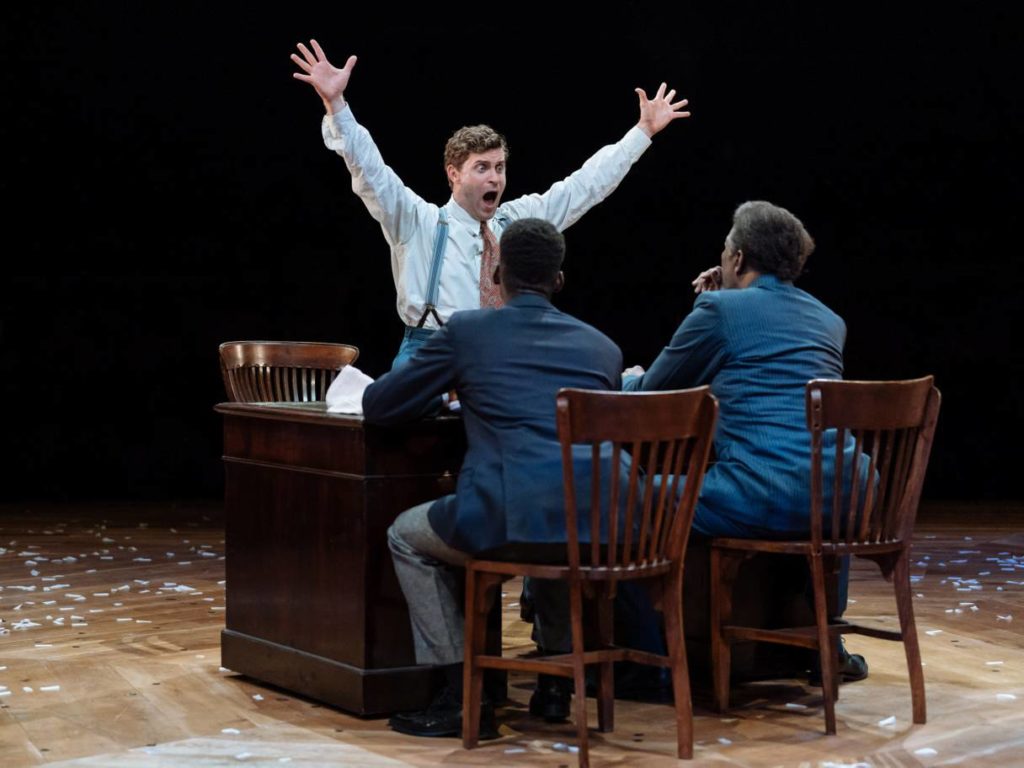
Miller renamed the play a Vaudeville piece after its flop on Broadway. Chavkin embraces this by ensuring her production has variety, fun and also rhythm. There are songs throughout and the choreography from Ann Yee is excellent, not least in taking into account that the cast are not dancers. It’s a good way to inject much needed energy; Ewan Wardrop’s tap-dancing CEO proves a real highlight. The music makes points – a manic lust for money and then panic with the Stock Market crash – while complementing the sketch-like quality of the play itself. With the motif of marathon dancing competitions that runs throughout the play, Chavkin’s vision is clear, akin to a live Reginald Marsh painting, but the scenes themselves amount to little, feeling anecdotal or didactic. It’s Chavkin’s skill to weave them together so skilfully – and it’s easy to see why she is one to watch. Still, this play isn’t one to give time to.
Until 30 March 2019
Photos by Manuel Harlan

